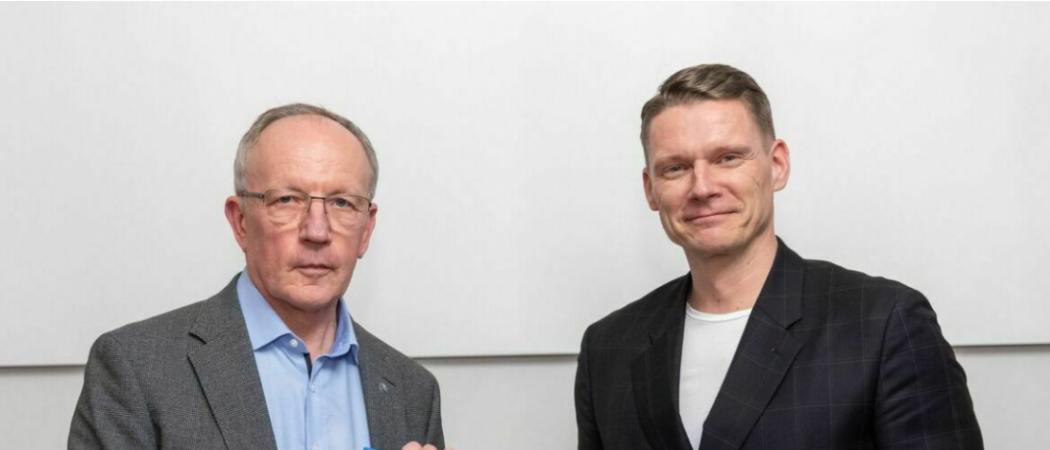
Photo: Univeristy of Tartu website.
On Monday, 26 February, the University of Tartu and North Estonia Medical Centre renewed their cooperation agreement, which aims to promote mutual study and research, and develop the Estonian healthcare sector.
The agreement was signed in the senate hall of the University of Tartu by Agris Peedu, Chairman of the Board of the North Estonia Medical Centre, and Toomas Asser, Rector of the University of Tartu. Vice Dean of the Faculty of Medicine of the University of Tartu Ruth Kalda said that the aim of the agreement is to be partners in the training of doctors, in research and development, and in shaping the health policy. "This means joint efforts in advancing both medical education and healthcare," she said.
The agreement stipulates that the university will involve doctors from the medical centre as guest lecturers in the organisation of undergraduate studies, residencies and doctoral studies. The agreement will also allow the two partners to plan research and development projects, submit funding proposals, participate in each other's research teams, support each other's infrastructure and use of research bases, and organise joint events, including international conferences.
According to Ruth Kalda, strength lies in collaboration. "This will be useful for designing the learning environment, applying for different structural funds, using infrastructure and research bases, and much more. Estonia is a small country, and it is only natural that there should be cooperation in the development of clinical education, research and healthcare."
Agris Peedu, Chairman of the Board of the medical centre, said that the cooperation between the university and the hospital is effective. "I would like to emphasise that this is a strategic cooperation agreement and that we are jointly shaping the big picture of medical research and development in Estonia, Europe and, to some extent, the world. Equally important is the new generation of doctors and other health professionals, and this agreement confirms our common interest in contributing to this." Terje Peetso, Chief Medical Innovation Officer at the medical centre, added that cooperation is important also because both sides support the implementation of Estonia's higher education and innovation strategies. "In research and development, you can rarely succeed by doing something all by yourself, two heads are always much more than one, and many will benefit," she said.
This article was first published on 28 February by University of Tartu.





 A unique international forum for public research organisations and companies to connect their external engagement with strategic interests around their R&D system.
A unique international forum for public research organisations and companies to connect their external engagement with strategic interests around their R&D system.